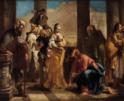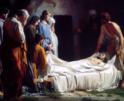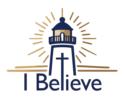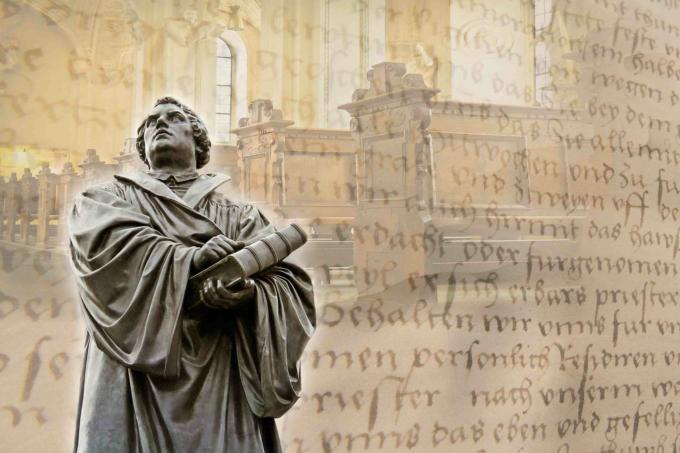
Faith
The Reformation era change was like a seismic shift with long-lasting repercussions. The Roman Catholic Church of today is not the same as the Church with which Luther and the other Reformers came into such deep conflict in the sixteenth century.
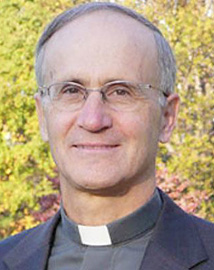
CSP
The Jan. 18-25 international Week of Prayer for Christian Unity takes place this year as part of a big ecumenical lead-up to the 500th anniversary of the Protestant Reformation next October.
This will be the first centenary commemoration of the Protestant Reformation to take place during an ecumenical age, and the first one that must deal with the challenge of a new evangelization in a time marked by both the proliferation of new religious movements and, at the same time, the growth of secularization in many places. Therefore, a Protestant-Catholic common commemoration presents us with the opportunity to offer a joint witness of faith.
Dr. Margot Kassmann, a spokesperson of the Evangelical Church in Germany for the Reformation Anniversary, reminds us that the Reformation was a widespread movement covering several decades in the 16th century that changed both state and church. The year 1517 is only a symbolic date and Martin Luther the symbolic figure. The Reformation was driven by many people such as Nicholas Copernicus, Ulrich Zwingli, John Calvin, Ignatius Loyola, Thomas More, Philipp Melanchthon, to name but a few.
The Reformation era change was like a seismic shift with long-lasting repercussions. The Roman Catholic Church of today is not the same as the Church with which Luther and the other Reformers came into such deep conflict in the sixteenth century. For example, the Council of Trent (1545-1563) said farewell to the practice of selling indulgences and in the 20th century the Second Vatican Council introduced the saying of the Mass in the vernacular.
Of course, many of the questions raised in the Reformation about the papacy, the veneration of the saints, and the understanding of ministerial office are still under the lens of discussion today. But Martin Luther wanted to reform his own church and not to split it. So for Protestants to set themselves apart in commemorating the Reformation would not make any sense.
In her writing, Kassmann identifies a variety of positive aspects that could be appropriately celebrated by Protestants and Catholics alike in this pre-anniversary year. One of them is education. The anniversary of the Reformation reminds us all that the churches of the Reformation are concerned with an educated faith.
For Luther, the precondition for a mature faith was that everyone could read the Bible for themselves and was educated enough to be able not only to learn the Small Catechism by heart, but also to share it with others and thus be empowered to speak of their faith.
The basis for this was education for all -- boys and girls alike -- and not just for the few who could afford it or who got an opportunity for education by entering a religious order. Martin Luther was the first to make equality and opportunity in education a public issue and to declare himself a vehement supporter of it. For him, faith meant an educated faith, based on an affirmation of the liberating message of the Gospel.
Another aspect of the anniversary inviting celebration is globalization and interreligious dialogue. The year 2017 will be the first Reformation anniversary celebrated in a global perspective. While Luther himself had a very restricted view of the world, the Reformation was a European event which very soon took on international proportions. The anti-Judaism of the late Martin Luther set a dark path for the church named after him.
But the failure of Christians in regard to the Jews in the Post World War II era has triggered a learning process. Today the Evangelical Church in Germany says whoever attacks Jews, attacks us. That also holds true with respect to Muslims. On that front, although Luther may have ranted against the Turks, today both in Europe and North America Christians and Muslims are living peaceably together in the same country. That said, Christians throughout the world are now the most persecuted religious community. Interreligious dialogue grounded in theology is a vital necessity of our time -- and it's happening!
And related to globalization and the religious pluralism of our time is another aspect worthy of our gratitude: the political dimension of the Reformation concept of freedom. The year 2017 will be the first Reformation anniversary on which in Germany and many nations of the world there is a clear separation of church and state and a clearly declared acceptance of constitutional law and human rights.
First and foremost, it is about the freedom that Christ gives to us and, consequently, about freedom of conscience, freedom of religion, and freedom of opinion. One of the major fruits issuing from the Reformation is that faith and reason remain alongside each other and prepared the way for the Enlightenment, however much and for however long the churches resisted it. Today we can say it is good -- for Protestants and Catholics and members of all the world's religions where it is a reality -- that there is separation of religion and state. A kind of "theocracy" or indeed a "religious dictatorship" does not promote responsible use of the freedom given to us by God.
The question before both Catholics and Protestants today is: What does it mean to be church, and how may we live together as church in ways that better manifest our unity? May this Week of Prayer for Christian Unity and pre-anniversary year find us turning toward one another in the renewed hope of reconciliation.
- Kevin and Marilyn Ryan, editors of "Why I'm Still a Catholic," worship at St. Lawrence Church in Brookline, Mass.
Recent articles in the Faith & Family section
-
Scripture Reflection for April 6, 2025, Fifth Sunday of LentFather Joshua J. Whitfield
-
Are there any saints who had a difficult relationship with the church?Jenna Marie Cooper
-
Holy Thursday and Good FridayFather Robert M. O'Grady
-
Faith is a verbArchbishop Richard G. Henning
-
Giving Mothers and Babies a Chance in the MissionsMaureen Crowley Heil

